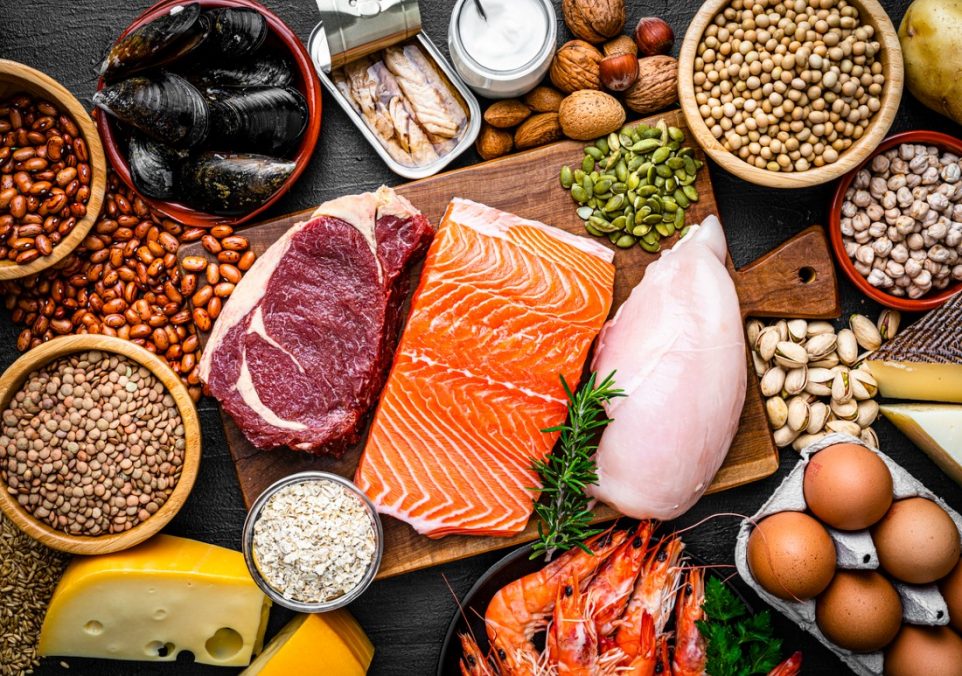Different Types of Protein You Can Add to Your Fitness Regime

Adding the right kinds of protein to your diet is a must. Protein helps build muscle, curb hunger, and speed up recovery after exercise. In this post, we’ll discuss the different types of protein you can add to your nutrition regimen, so you can make sure you’re getting what you need to reach your goals. We’ll also look at the benefits of different types of protein so you can decide which options are the best for you.
What Is Protein?
Protein is an essential macronutrient found in all living organisms. It is composed of amino acids – the building blocks of protein – and plays multiple important roles in the body such as providing energy, aiding in tissue repair, maintaining healthy skin and hair, and building muscle mass.
Essential Roles of Protein
Protein is an important part of the diet because it helps the body perform its necessary functions. It is essential for muscle growth and repair. It also enables biochemical reactions, helps keep bones strong, and helps maintain a healthy weight.
Additionally, it assists with the production of hormones, enzymes, and antibodies that fight infection. The daily recommended amount of protein for adults over 18 years old is 46 grams for women and 56 grams for men. However, protein requirements can vary according to age, health condition, and activity level.
Sources of Protein
Animal-based Protein Sources
Meat is a great source of high-quality protein that provides all the essential amino acids required by the body. Examples include beef, pork, chicken, and turkey. Fish is another great source of animal-based protein rich in omega-3 fatty acids which have numerous health benefits such as reducing inflammation, lowering cholesterol levels, and preventing heart disease. Good examples include salmon, trout, and tuna. Dairy products like milk, yogurt, cheese, and cottage cheese are high in protein as well. Not to mention the calcium that helps strengthen bones and teeth.
Plant-based Protein Sources
There are many plant-based protein choices. Legumes are a great source of plant-based proteins as well as fiber, vitamins, and minerals such as magnesium, iron, phosphorus, and zinc which are important for optimal health. Examples of this include beans, lentils, chickpeas, and peas.
Nuts and seeds are not only high in protein but also provide healthy fats that support heart health such as omega-6 fatty acids like linoleic acid which has anti-inflammatory effects on the body. Healthy options include almonds, walnuts, pumpkin seeds, and sunflower seeds.
Soy is a complete source of plant-based proteins that can be found in various forms such as soy milk, edamame (soybeans), tofu, or tempeh (fermented soybean cake). Soy contains all the essential amino acids required by the body thus making it a great source of plant-based proteins for vegetarians or vegans.
Different Forms of Protein
Powder
Protein powders are one of the most popular forms of supplementing with protein thanks to their convenience. They can easily be added to shakes or smoothies or other recipes to boost their protein content without any fuss. Popular types include whey protein powder from cow’s milk, casein protein powder, or plant-based powders such as pea protein or rice protein powder which provide all essential amino acids just like animal sources do but without the cholesterol or saturated fat sometimes associated with them. There are also collagen powders that are available that help promote healthy skin, hair and nails.
Bars
Protein bars are another convenient way to get your daily dose of proteins. Many offer balanced nutrition along with some carbs for an energy boost throughout the day, making them a great snack between meals or a workout. Popular brands offer various flavors from classics like chocolate, and vanilla to more unique ones like banana nut muffin, lemon, or cookie dough flavors.
Drinks
In addition to powder supplements, there are also protein shakes such as RTDs (Ready To Drink) shakes that offer balanced nutrition along with high-quality proteins. These usually contain anywhere between 15g up to 20g+ per serving plus some carbs for an energy boost.
Building a Stronger You
Supplement Institute is the fruit of extensive online publishing experience, spanning the breadth of SEO strategies to the nuances of paid advertisements. Our journey, marked by significant achievements and learning moments, inspires our core mission: to empower our readers with an abundance of information. By sharing insights and key learnings, we aim to provide you with the knowledge needed to navigate the complex world of supplements, helping you make well-informed decisions for your health and well-being. Welcome to Supplement Institute, where information is your greatest supplement.